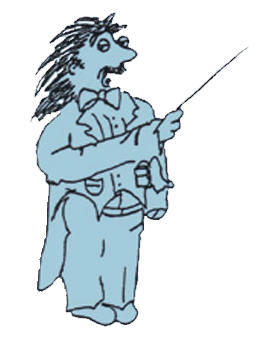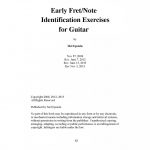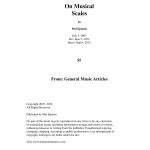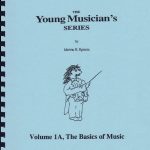The following Frequently Asked Questions are one that are commonly raised at the time of setting up music lessons.
1. Must I learn to read music notation in order to learn to play an instrument? No but it’s advisable to do so. Typically, instruction books include basic music notation instruction along with the material on playing your particular instrument. Not many notes are presented at any one time, so the information is typically easy to digest. I’ve also written a book on music basics which carefully explain the essential points, along with practical exercises to help. But if you are dead set against learning to read conventional music notation, then we can still teach you how to play your chosen instrument.
2. Must I purchase a block of lessons at a time? No. However, if you find that having a block of lessons pre-purchased is simpler and easier to deal with, then that’s fine. You can pay me accordingly and I will keep careful records of all of your prepayments. Some students like to start out paying by the lesson, then shift over to monthly payments once regular lesson have become part of the weekly (or bi-weekly) routine.
3. I’m retired. Am I too old to learn to play a musical instrument? While the aging process certainly takes a toll on the human body, I would say that, barring complete physical impairment, there is no reason not to pursue learning to play a musical instrument. For one thing, the activity of music making can bring such satisfaction and joy that it strongly outweighs the extra effort required to develop the necessary skills. For another, the desire to know how to play a particular instrument has often lay dormant for decades inside one. It would be a shame to not take advantage of the opportunity to finally pursue that dream. Beyond these points, workarounds can always be developed to accomodate physical disabilities.
4. How soon will I be playing songs? Within weeks. Of course, the songs that you will be able to play after, say one to two years of regular work on the instrument will be that much more sophisticated than the early ones. But each song that you become able to play will be able to stand on its own two feet.
5. Must I have lessons each and every week? No. Most students do take a lesson every week, on the same day and time. However, adult students have tended to prefer a lesson every other week, again on the same day and time, so as to allow enough time between lessons for practice. Weekly lessons are preferable, where possible, as that frequency of meeting helps support and maintain the learning momentum. Also, it’s easier to slack off from practice with longer time stretches between lessons. But I will honor any schedule, even if variable and subject to last-minute changes, that you and I come up with.
6. My schedule changes week to week. Can you accommodate my situation? Yes. I invariably have a few students whose life and work situation demand a variable schedule and one that is subject to last-minute changes. Don’t let that fact get in the way of your taking music lessons. We can accomodate those circumstances.
7. I have arthritis. Can I still learn to play an instrument? Yes. As arthritis is quite a common development with older adults, it’s more the exception than the rule that someone plays an instrument without any such physical challenges. We will work together to determine how long and concentrated an effort you can make while playing your instrument, before a break is needed. Also, I have observed that regular use of your fingers and arms helps to improve dexterity and movement, thus lessening the inhibition that arthritis and other related conditions impose.
8. What happens when I can’t make it to a scheduled lesson? We work it out. I generally request a one day advance notice when a student cancels a previously scheduled lesson for the student to avoid having to pay for the lesson. As each of my workdays is built of a planned sequence of lessons and locations, a sudden drop out of a lesson leaves me insufficient time to rework my schedule. With a one day notice, I have at least a good chance of being able to rework my schedule. Any prepayment is preserved and applied to the next lesson taken. Also, when a lesson is cancelled, I try to find an alternate day/time for the missed lesson and apply the missed lesson payment to the rescheduled on. It is not a big deal, unless it happens frequently. When that’s the case, then you will be required to pre-purchase a block of lessons (namely, four at a time), none of which may be cancelled. After the block is used, you may revert to the original payment Policy.
9. My son is 7 years old. Is that too young to start lessons? No. That is usually an excellent age to start up lessons. Starting up with lessons when younger that 7 years old can work as well, provided that the material used is age-appropriate and the performance demands tailored to the abilities of the student as he/she is. Many fine Primer and Pre-Primer books exist to provide a pathway for younger learners. I’ve successfully taught students as young as 4 years old and as old as 94 years old.






